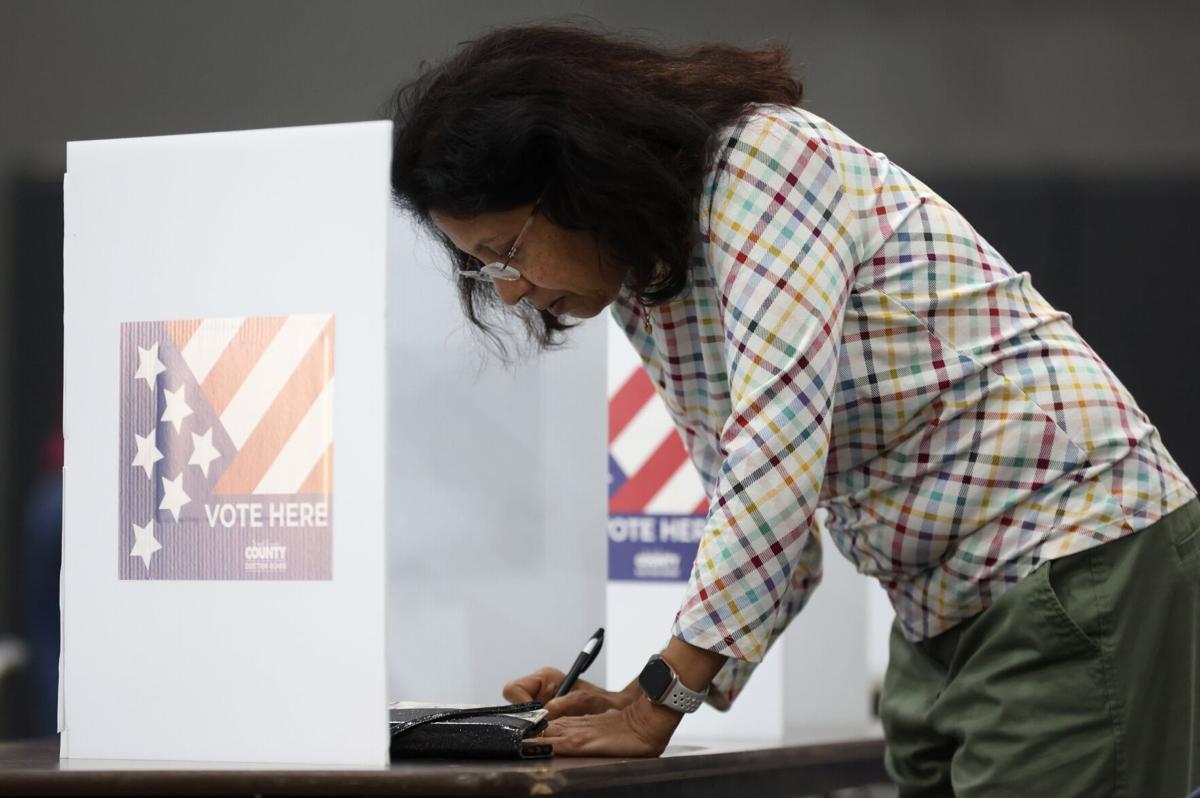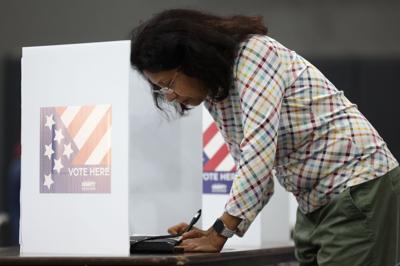JEFFERSON CITY ŌĆö On the heels of a newly launched campaign to legalize abortion in Missouri, House Republicans are planning to move forward this week with an effort aimed at making approval of those abortion protections more difficult.
Citizen-led initiative petitions to amend the Missouri Constitution currently take effect upon a simple majority vote, which has allowed voters to bypass the Legislature on issues such as Medicaid expansion and marijuana legalization. In May, House Speaker Dean Plocher, R-Des Peres, predicted an abortion measure also would pass with a simple majority.
Proposals scheduled for a committee hearing Tuesday would create a new, more difficult requirement for passage: In addition to the statewide popular vote, successful measures would need voter approval in most legislative districts.
People are also reading…
One resolution up Tuesday, by state Rep. Ed Lewis, R-Moberly, would require initiative petitions to win the statewide popular vote as well as majorities in five of MissouriŌĆÖs eight congressional districts.
His second plan would require successful campaigns to win a majority of the popular vote and majorities in 82 of 163 Missouri House districts.
ŌĆ£Do you want to have just the population centers, the cities of the state, dominate the IP (initiative petition) process?ŌĆØ Lewis asked Monday.
Republicans hold six of eight U.S. House seats and a two-thirds majority in the state House, a fact that would place progressive ballot measures at a disadvantage.
It remains to be seen whether Republicans will ultimately settle on such a ŌĆ£concurrent majorityŌĆØ proposal instead of the approach that gained the most traction last year ŌĆö increasing the statewide percentage needed for passage, currently set at a simple majority.
Rep. Peggy McGaugh, a Carrollton Republican and chair of the House Elections and Elected Officials Committee, said Monday she thought a number of lawmakers believed a concurrent majority is ŌĆ£worthy of a second look.ŌĆØ
Similar to past debates, TuesdayŌĆÖs hearing could also generate criticism that Republicans were using ŌĆ£ballot candyŌĆØ in an attempt to juice voter sentiment.
In addition to requiring concurrent majorities, the resolutions would also ban foreign interference in initiative petitions as well as initiative petitions that raise taxes on food or property.
Both are mentioned in proposed ballot summaries before the concurrent majority plans.
Voters would get the final say on any question lawmakers ultimately place on the ballot to change the initiative petition process.
Gov. Mike Parson, a Republican, would choose whether the initiative petition changes appear before voters in August or November.
If voters approve initiative petition changes in the Aug. 6 primary, the higher threshold would be in effect for questions on the Nov. 5 ballot, said JoDonn Chaney, spokesman for Secretary of State Jay Ashcroft, a Republican.
In Ohio, voters in August rejected by a broad majority a proposal by lawmakers to raise the threshold for passage there to 60%. Passage wouldŌĆÖve made it more difficult for voters there to protect abortion rights in November.
After the Ohio vote in August, Senate President Caleb Rowden, R-Columbia, cast doubt on any similar effortŌĆÖs success in Missouri, though he predicted renewed efforts to change the initiative petition process after lawmakers returned to the Capitol in January.
Nearly 57% of Ohio voters there went on to approve abortion protections in November.
Last week, the Senate erupted as a faction of the Republican caucus held up a list of gubernatorial appointments for hours, demanding Rowden fast-track initiative petition changes in the wake of the abortion legalization campaign launch.
Rowden has said he would refer initiative petition changes to committee this week. The Senate canceled business Monday due to icy weather conditions.
The measures are House Joint Resolutions 72 a 102.
Missouri's Legislature reflects the federal structure in many ways. Video by Beth O'Malley














